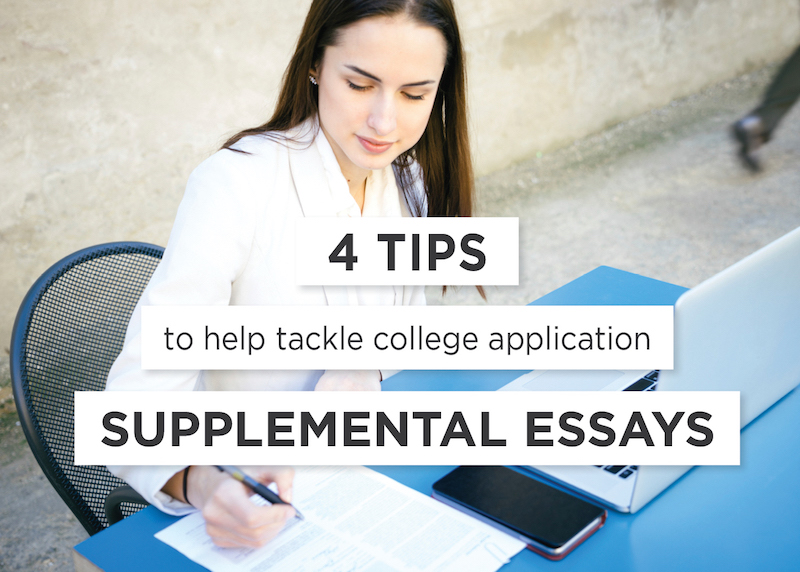
Throughout the college application process, a lot of the focus remains on the major personal statement essay. However, arguably the more difficult assignment is finding a way to aptly answer the supplemental essays. Since the questions are more specific and the length is considerably shorter, it can be difficult to get all of your ideas down into a short essay. If you’re struggling to take the first big steps towards getting through the supplemental essays, here are four fantastic tips to push you in the right direction.
Know your stuff
No one—especially college admissions staff—likes a kiss-up, but when it comes to college-specific supplementary essays, there’s an important difference between brown-nosing and showing that you’ve done your research. A crucial part of this is making sure that everything you say about the university is actually true. This might seem like an obvious point, but it’s surprisingly easy to slip up when you’re writing dozens of responses and things start to blur together a bit. You probably don’t want to talk about “exciting research opportunities” if it turns out that less than, say, one in every fifteen students get to do research as an undergraduate. One mistake might not be enough to get your application automatically thrown out, but it certainly isn’t going to impress anyone. There’s no reason for carelessness when a simple Google search and some trawling through the university’s website will be able to verify anything you might want to mention.
Be specific
This is a good rule to follow for any kind of writing assignment you have to deal with, but it’s particularly true in this case. With thousands or even tens of thousands of applications streaming in each admissions cycle, generic statements like “the English department here is strong” or “the Science and Engineering School provides a lot of opportunities for internships and research positions” are unlikely to stand out. That kind of praise is bland, uninteresting, and perhaps most importantly, could probably be said about nearly half of the roughly 3,000 four-year colleges we have in the U.S. That just tells the admissions staff why you want to go to a college, not why you want to attend their college. Do you like the fact that your dream school has an incredibly robust alumni network? Mention a few of their notable alumni, or point out that a lot of their graduates end up working in a field that you’re interested in. Are you a fan of the school’s humanities department? Bring up some unique programs it has, like Carnegie Mellon’s Ethics, History, and Public Policy major, or Johns Hopkins’s Social Policy minor.
Cut out the fluff and get to the point
One thing that really sets most supplementary essays apart from the Common App personal statement is length. With word limits typically ranging from 200 – 500 words at most, there’s not a lot of leeway to beat around the bush. Don’t waste your time—by the end of the first sentence, anyone reading your supplement should be able to figure out what it’s about. Keep things straightforward and to the point. Once you’re done, you should go back over what you’ve written and cut out any parts that seem superfluous.
Make it personal
Some prompts are easier to personalize than others. If you’re asked why you want to attend a certain school (which happens often), it can be tempting to spend your couple hundred words waxing poetic about how fantastic this or that program/professor/student organization is. Remember, the people who are going to be reading your essays already know how awesome their university is. That’s why they’re there. What they’re looking for is why all this matters to you. So Kenyon College is known for its excellent creative writing courses—why is that important to you specifically? Do you want to be a professional poet or novelist in the future? How did you develop your love of writing? Showing that personal connection not only makes your praise seem more genuine and compelling, it also reveals more about yourself, which is always good. This will help the admissions staff determine whether you’re a good fit for their institution.
Looking for essays? Stop by and read actual college essay introductions to help find some inspiration. If you’re looking for more in depth help by specific schools, search by university to find examples of the questions you’re looking for.















 Back
Back